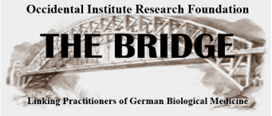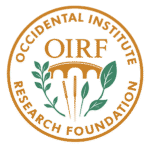And, to remind ourselves why we all do this . . . This is part of an interview done for the newsletter of a local faith community with a gentleman who has a brain tumor.
Newsletter: Before you had the first seizure and discovered that you had a brain tumor, you had a way of understanding your own body, human disease, and the practice of western medicine that, I suspect, might have stayed the same to the end of your life. How do you see all that differently now?
David: I have been well all my life, seldom missing a day of work. For me, illness was seen only as an inconvenience. All I wanted and expected from medicine was to take a pill and keep on going. Medicine was the practice and product used to keep the machine working well. Now, I have a much stronger connection and respect for my body. It speaks to me and is reflective of my happiness and stress. It has a wisdom that is not so distracted as the mind can be. I just don’t always want to know what it’s telling me. I’ve now come to expect healing, western or eastern [or biological], to reconnect me to this body wisdom when I may have lost my way. I expect that there will be something required of me to bring about balance once again. I am willing to be taught to hear the wisdom and make the changes that need to be made.
Newsletter: I am left wondering about the place of crisis in human life. You lived and learned through a crisis. Our faith community is doing the same thing right now. What words of insight and wisdom do you have for any institution (or person) that finds itself living with crisis?
David: You are lucky. When I read about or talked to others struggling with themselves through a cancer crisis, most of them would say at some point: “It was the best thing that ever happened to me”. Last year I was in no space to say, or even think that phrase. This crisis only made me mad. I hated it. I hated the inconvenience to my ability to work and drive a car, the inconvenience to my family, the changes we had to make, the things I had to say no to. My diet was a daily reminder of the crisis and urgency for change. On the other hand, my diet was also the symbol of hope and my commitment to a new relationship with myself and a commitment to live. I’ve had the chance to make these changes in my life in the past, but not the strength. It took a crisis as large as death to stop my train so I could get off and explore new territory. In this transition is creativity, and creativity comes from the Source. Many channels of communication with the Source open up during crisis transition. New skills are needed. Crisis is opportunity – a call to higher ground. I have now joined the others saying, “It was the best thing that ever happened to me”. May you also find the same words for yourselves as you work with the new creative forces calling to you in this time of crisis. There is risk and challenge. It certainly won’t be easy, but it surely will be rewarding. Many blessings on you.
Newsletter: David, thank you for being willing to share these aspects of your life and recovery which are so personal and yet, when shared, so full of potential for transformation.
 An interview of interest for Members
An interview of interest for Members
From THE BRIDGE Newsletter of OIRF
Published February 15, 2006
© Copyright 2006, OIRF, BC Canada


